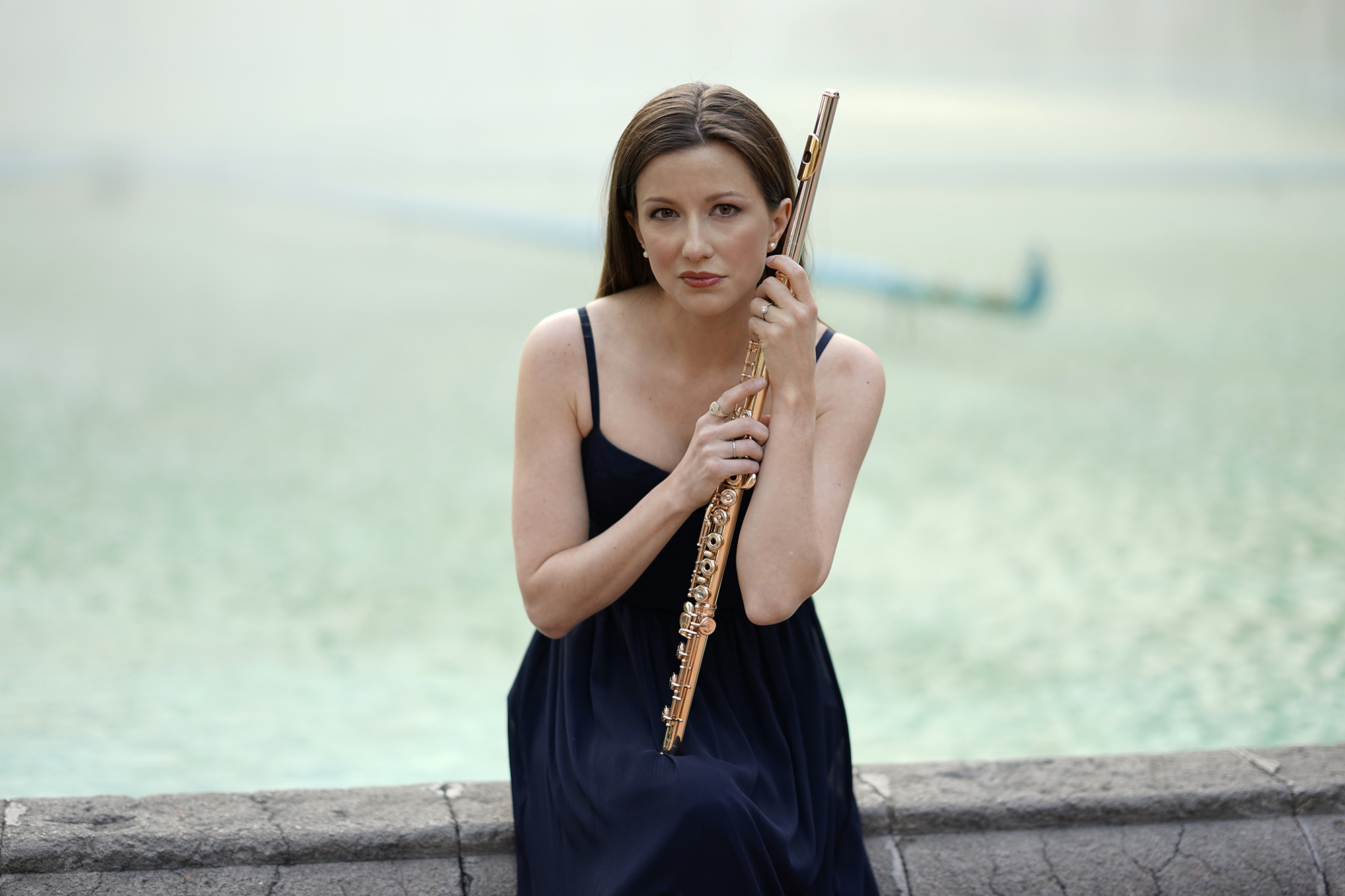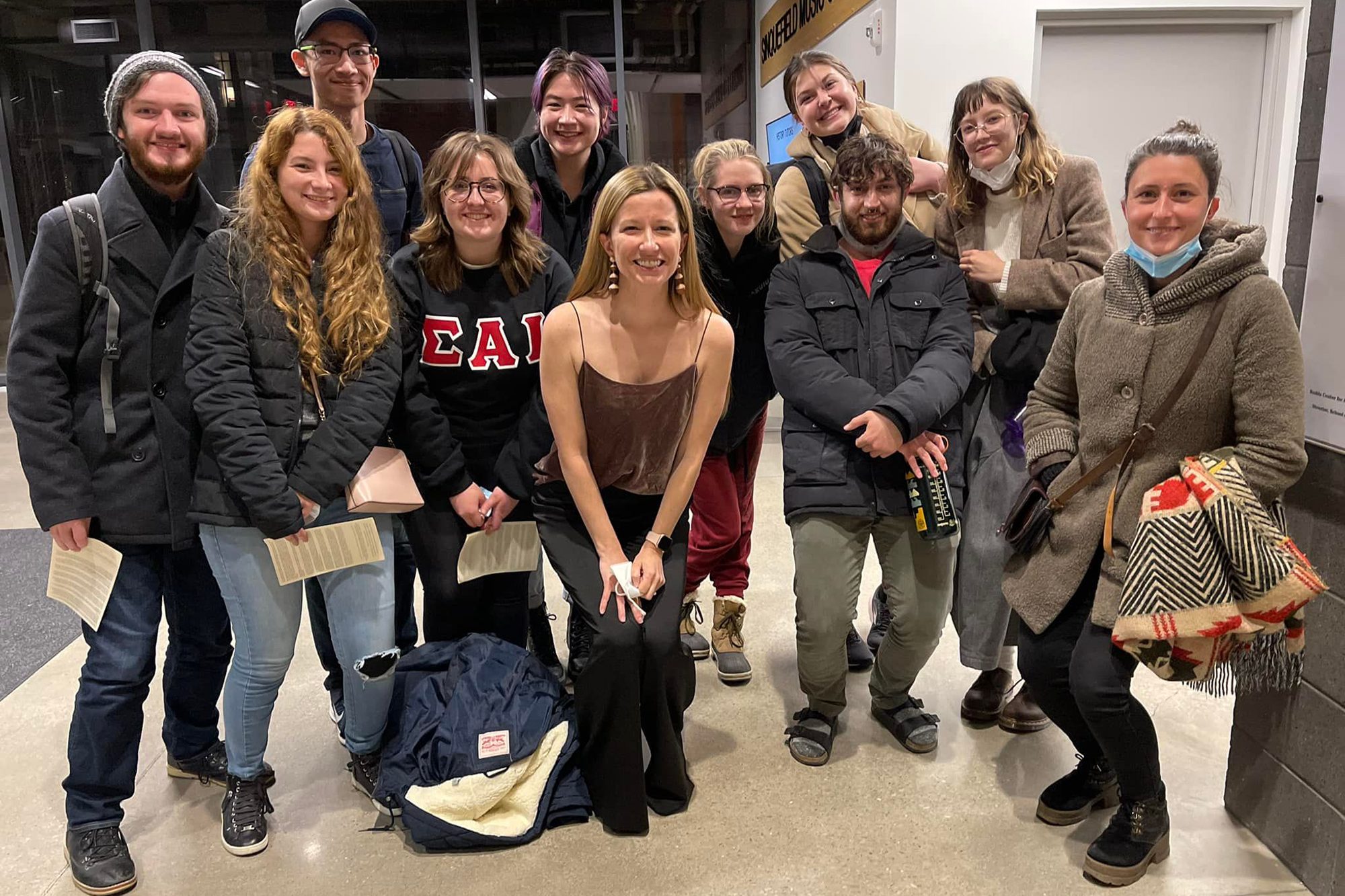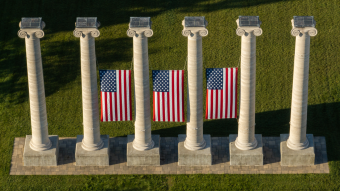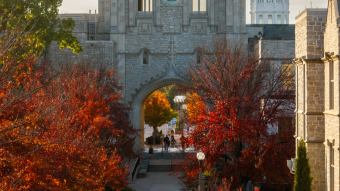April 7, 2022
Contact: Marcus Wilkins, wilkinsm@missouri.edu
Like the jubilant solos so often written for her instrument of choice, Alice Dade has followed an energetic and aspirational career path. Born into an Air Force family that moved her around the globe — San Antonio, New Jersey, Germany, Minneapolis, Kentucky — the associate professor discovered early that she had an ear and mind for music.
The natural knack led her to the flute, which led her to the prestigious Juilliard School, then Columbia University and on to other pursuits. She ultimately found a home at the University of Missouri, a place where she has made her multi-endeavored dreams come true. Teaching, performing and recording are all a part of her academic life, and she pours her heart completely into every opportunity.
Dade will be featured on the season 3 premiere of PBS’s Now Hear This at 8 p.m. CDT Friday, April 8. Hosted by Dade’s husband — Scott Yoo, himself a renowned violinist and conductor of the Mexico City Philharmonic — the show “merges music, storytelling, travel and culture.” The episode focuses on the music of Amy Beach, the first successful American female composer.
What are you earliest memories of music and falling in love with music?
Growing up, I was trying all of the things that my older sister was doing: softball, soccer and ballet. I couldn’t come close to her level. But in kindergarten, I played the glockenspiel, and at an early age I had a special relationship with pitch. I don't have perfect pitch, but I have “pitch memory,” where if I watched a musical with my family I could sing songs in the same key days later. I always zeroed in on music — whether there was music in a movie or in a restaurant. When I was 13, I remember sitting in an orchestra for the first time and the conductor asked us to tune — the orchestra always plays an A — and I just knew that I have to do this. There was something about the amazing stereo sound of sitting within the ensemble. It was a lightning bolt moment for me.
What do you love about the flute? What makes it unique?
Flutists tend to be typecast. The flute is always a bird, like in [composer Sergei Prokofiev’s] “Peter and the Wolf.” We don't usually get the mournful solos like the oboe, or the quirky solos of the bassoon. The flute has a positive outlook for life, and you have to work really hard to make it sound simple and not as difficult as it might be. What makes it unique is sometimes just luck! For example, Johann Sebastian Bach wrote a lot of music for the flute because there happened to be a flutist working at his church. As a result, we have a lot to play by the master himself.
What do you love about teaching at Mizzou?
Every student is working with different instruments — as in, their body is an instrument, and whatever musical instrument they're playing. I’ve had students double majoring in music and biochemistry, who are goal oriented. But then I might have students who come in not very motivated, and the trick is “OK, let's find your motivation. What about music excites you? What do you want out of this?” And that's really exciting. I think if I wasn’t teaching at the college level, I would be a high school guidance counselor, because I love helping people find their niche. I think that’s really exhilarating. I learn so much from my students. They are my teachers.
Walk us through the process of filming Now Hear This.
Scott and director Harry Lynch decide which composers the show will cover in a season. From there, Harry decides how to tell the story. Often times, a Now Hear This episode will have parallel story lines. In the pilot episode, there is an exploration of Vivaldi’s life but also of the evolution of the violin. In Handel, they explore Handel’s crucial years in Italy, but also what makes something intrinsically Italian. I was first invited to guest-star on the second episode; Harry needed me to be Scott’s counterfoil as we tried to decode a musical puzzle on Bach’s portrait. In the episode premiering April 8, Harry wanted me to co-host, since the episode was about America’s first woman Romantic. We’re about to shoot an episode in a couple of weeks about the Argentinian tango composer Piazzolla. His first mature works were written for flute and guitar, which gave me the opportunity to go to Buenos Aires.
What does a typical day on set look like?
A shoot typically lasts seven to 10 days, and we try to shoot two to three scenes per day. Each scene involves hauling tons of equipment, then lighting the scene, setting up microphones for music, hiding microphones under clothing, determining the best camera angles — and then finally shooting the scene. Then, we tear down and travel to the next location. All of the early breakfasts, long shooting days, travel, late nights have made the crew practically family members.
Harry is really a genius — as he is directing, he is simultaneously editing the scene in his head and making sure that he can mix and match different takes to tell the story he wants to tell. Even though the show is unscripted, he needs to give me a hint as to what needs to happen on camera, but not too much to sap the scene of spontaneity! It does take some time for the camera to blend in with the background, focusing on the conversation and discovering new things along with the audience.
Why is the work of Amy Beach important? How have you connected to it?
Amy Beach is an important, prolific composer, because she was the first American female to write a symphony. She performed a piano concerto with the Boston Symphony in her teenage years and, for the times, was fortunate to have a husband who was supportive of her compositions, if not her piano play. Perhaps he didn’t want people to think she had to perform in order for them to survive? He was a famous surgeon and Harvard professor. Perhaps it wasn't “ladylike"? She also wasn’t allowed to take composition lessons, so she was self-taught. She jumped all those hurdles and persisted. An inspiration for us all.






